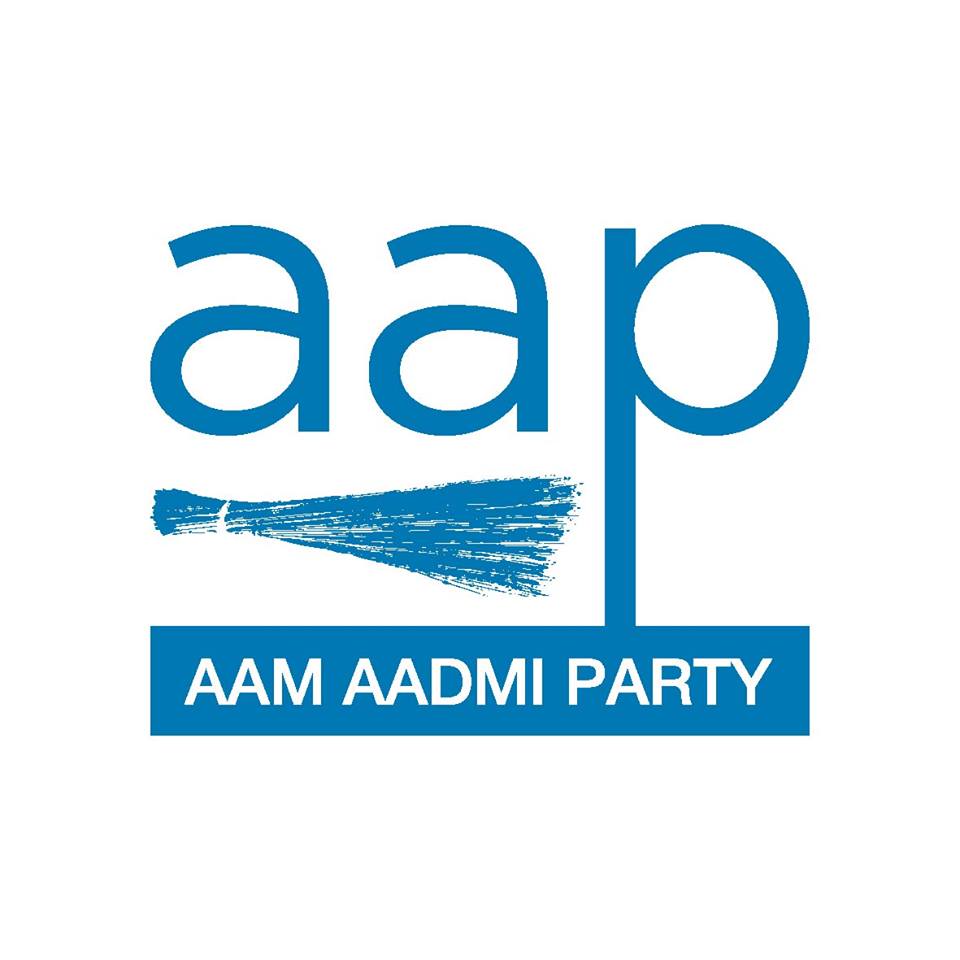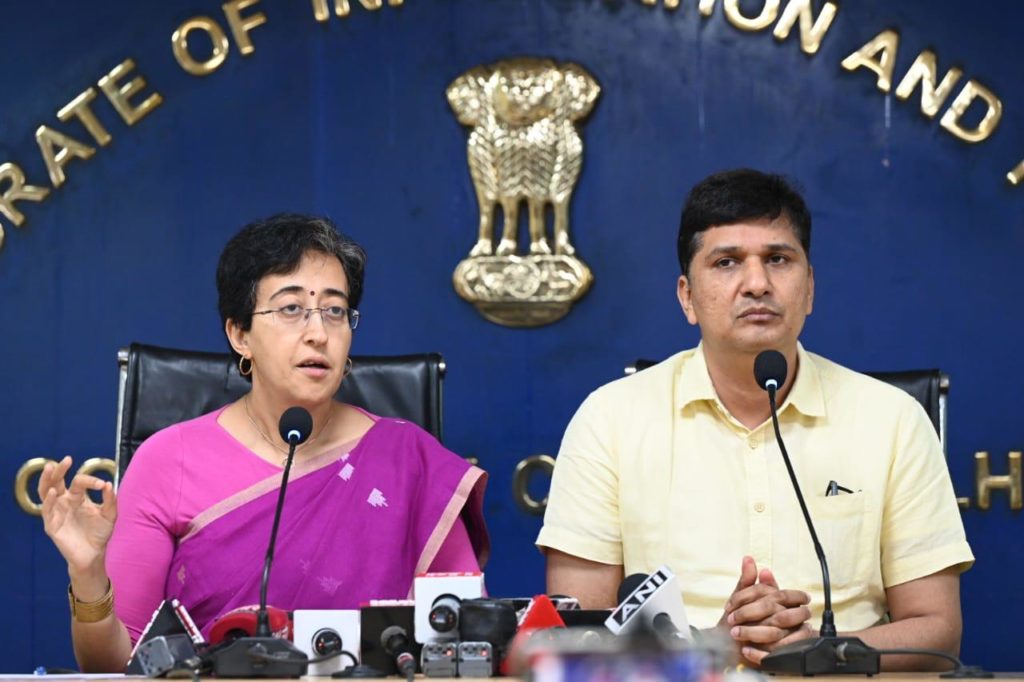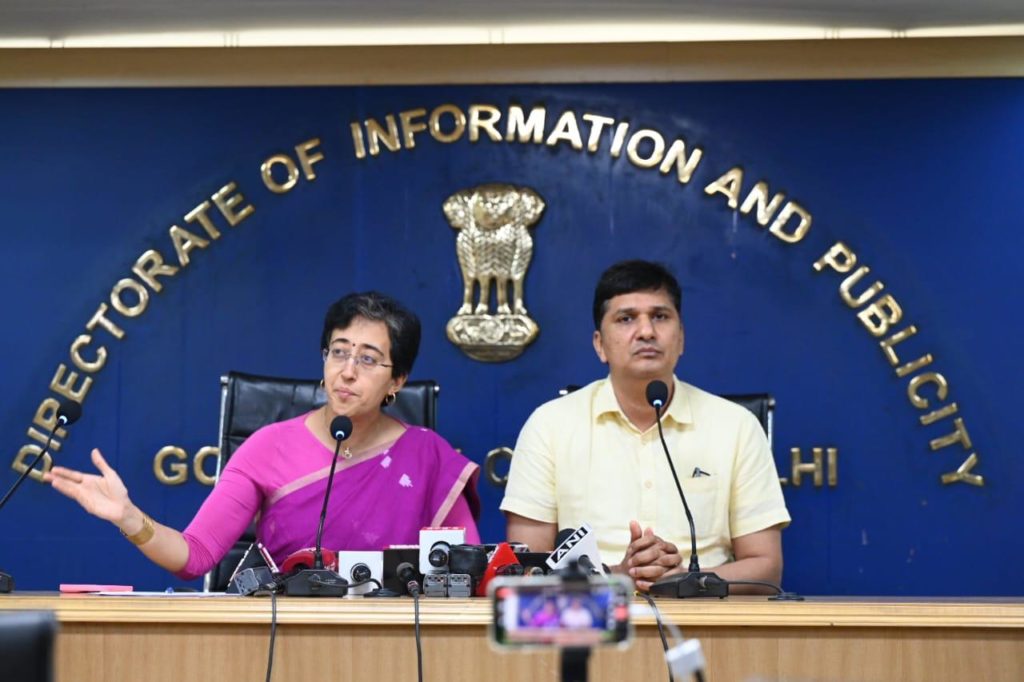Despite repeated talks and letters demanding the release of Delhi’s full share of water from the Yamuna River, the Haryana government remains unresponsive. As a result, the Kejriwal administration has decided to escalate the matter to the Supreme Court. Water Minister Ms. Atishi announced, “We are going to the Supreme Court demanding Delhi’s right to water. The Haryana government is not releasing enough water in Yamuna, causing a deepening water crisis in Delhi.” In response to the crisis, the government implemented several emergency measures, including the creation of a water tanker war room, a helpline (1916) for ordering water tankers, and the formation of 200 enforcement teams which keep an eye on the wastage of water. Additionally, the use of potable water from the Delhi Jal Board (DJB) at construction sites and car wash centres has been banned, with strict enforcement to ensure compliance.
Delhi Water Minister Ms. Atishi said that Delhi has been facing a water crisis for some days. There are many parts of Delhi where there is not enough water supply. The main reason for this water problem is Haryana not releasing Yamuna’s water into Delhi. Delhi is largely dependent on Yamuna water. Delhi’s water treatment plants run on Yamuna water. When the Yamuna comes to Delhi, the Yamuna water is stopped at the Wazirabad pond. From there, water is provided to three water treatment plants Wazirabad, Chandrawal, and Okhla.
The Delhi Water Minister continued, stating, “This morning when I went there for inspection myself, it was clearly visible that the normal water level should be 674 feet, today the water level is at 670.2 feet. When there is no water in Yamuna, no water at Wazirabad point, then it is natural that the water supply from Wazirabad Water Treatment Plant, Chandrawal Water Treatment Plant, and Okhla Water Treatment Plant will be affected.”
Minister Atishi mentioned that the Delhi government is filing a case in the Supreme Court today regarding this water issue. “We are going to the Supreme Court so that the Supreme Court orders Haryana and UP from where Delhi’s water comes, that Delhiites should get their rightful share of water. Apart from this, many emergency measures are being taken by the Delhi government.”
Kejriwal government’s preparation to deal with water crisis
War room of central water tanker
The Water Minister briefed, “Wherever there is a shortage of water supply, water tankers are sent to such areas. We are setting up a central water tanker war room in the Delhi Jal Board (DJB). This war room will be headed by a senior IAS officer. There will be a central command and control centre. Any Delhi resident who wants a water tanker should dial ‘1916’. From 1916, their request will go to our water tanker war room, and from there, water tankers will be provided to places where there is a shortage of water supply.”
Quick Response Team in all 11 zones
The Water Minister shared that from 5th June, in every water zone of Delhi (there are 11 water zones in Delhi), one ADM level officer and one SDM level officer will be stationed in all the zones of the water department. Why 5th June? Because all the ADMs and SDMs are busy counting the election votes right now. These officers will form a quick response team that wherever there are hotspots of water shortage, these ADMs-SDMs and their Tehsildar’s team will be fully available to deliver tankers on the ground and to solve the water problem.
Special Electrical Department Team of Jal Board
She mentioned that wherever borewells are being used, a special team of Delhi Jal Board’s electrical department is being formed which will work round the clock to ensure that no borewell is damaged or dysfunctional.
DJB’s 200 enforcement teams
“We had announced on Wednesday itself that we are forming 200 enforcement teams of Delhi Jal Board, which will check the wastage of water. A senior IAS officer is being appointed to head these enforcement teams. Who will monitor these 200 enforcement teams and the challans being issued by them across Delhi,” She shared.
Ban on the use of portable water in construction sites and car service centres
Minister Atishi further informed, “Two more important steps are being taken given the water emergency today. There is a complete ban on the use of any kind of portable water on construction sites, whether it is from water tankers, water pipelines or borewells. If any construction site is found using portable water, then those sites will be sealed by MCD.”
The Water Minister stated that the MCD’s reinforcement teams will start visiting construction sites from tomorrow morning. Another emergency measure that is being taken is that there are many car repair and car washing centres which are using portable water coming from Delhi Jal Board via the drinking water pipeline. The use of drinking water by the Delhi Jal Board in car washing and car repair centres is being completely banned. From tomorrow, the DPCC teams will be on the ground and will start inspecting car washing centres and car service centres. If any car washing centre is found using drinking water, it will be sealed immediately.
“We are going through an emergency situation. There are two reasons for this emergency, one is the heat wave in Delhi and the second is the way Yamuna water is not being released from Haryana. So, an appeal to all Delhiites is to cooperate with the government in this emergency. Use as little water as possible, do not waste any kind of water. Only when all Delhiites come together, we will be able to face this water crisis,” Minister Atishi concluded.
Meanwhile, Delhi Health Minister Shri Saurabh Bharadwaj said, “Delhi is grappling with severe heat waves. It was expected, the weather forecast was that there would be a heat wave during this time. The two departments, the health department and the water department are most important during this heat wave. But, the health department’s secretary, Mr. SV Deepak Kumar and the CEO of the Delhi Jal Board Mr. Anbarasu are on leave without informing their ministers, without taking permission from them.”
“I have also been ill for many days, but when there is such a big disaster, one should keep one’s personal matters aside. We do not even know the reason for their leave. The people of Delhi should be our priority. The Chief Secretary said in the meeting today that he has given leave to both of them. The Chief Secretary is giving leave to the head of such an important department on his own without informing the ministers. This is surprising and unfortunate,” the Delhi Health Minister stated.
Minister Shri Saurabh Bharadwaj said that we will demand from the Supreme Court that we all are witnessing water shortage in Delhi. The whole country is one. If there is any possibility of providing water in the neighboring states, then the neighboring states should provide water to Delhi for a few days, so that this water crisis in Delhi can be resolved. If we get at least 50 MGD water in Wazirabad Pond, then it will provide some relief.
Addressing a question, Minister Atishi said, “The water coming into Yamuna is sent from Wazirabad pond to water treatment plants in Wazirabad, Chandrawal and Okhla. If water does not go to these plants, then how will the water be treated and supplied further? Data from the last several years shows that on May 30, the water in Wazirabad Pond should be at a level of about 674.5 to 673.8. But today it has fallen to 670.3 feet, due to which these three water treatment plants are affected.”
Emergency meeting of Kejriwal government with senior officials including Chief Secretary
In view of the scorching heat and deepening water crisis in Delhi, on Thursday, Water Minister Ms. Atishi and Health Minister Shri Saurabh Bharadwaj held an important meeting with the Chief Secretary regarding proper management of water and health facilities. This meeting was held at 12 noon in Delhi Secretariat. Both the ministers took detailed information from the Chief Secretary on the measures being taken to deal with the water crisis. During this, many important decisions were taken to take strict steps so that the people of Delhi do not have to face the problem of water. Apart from this, necessary instructions were also given to provide proper treatment for the people coming to hospitals after falling ill due to scorching heat. Other senior officials of the concerned departments were also present on this occasion.



